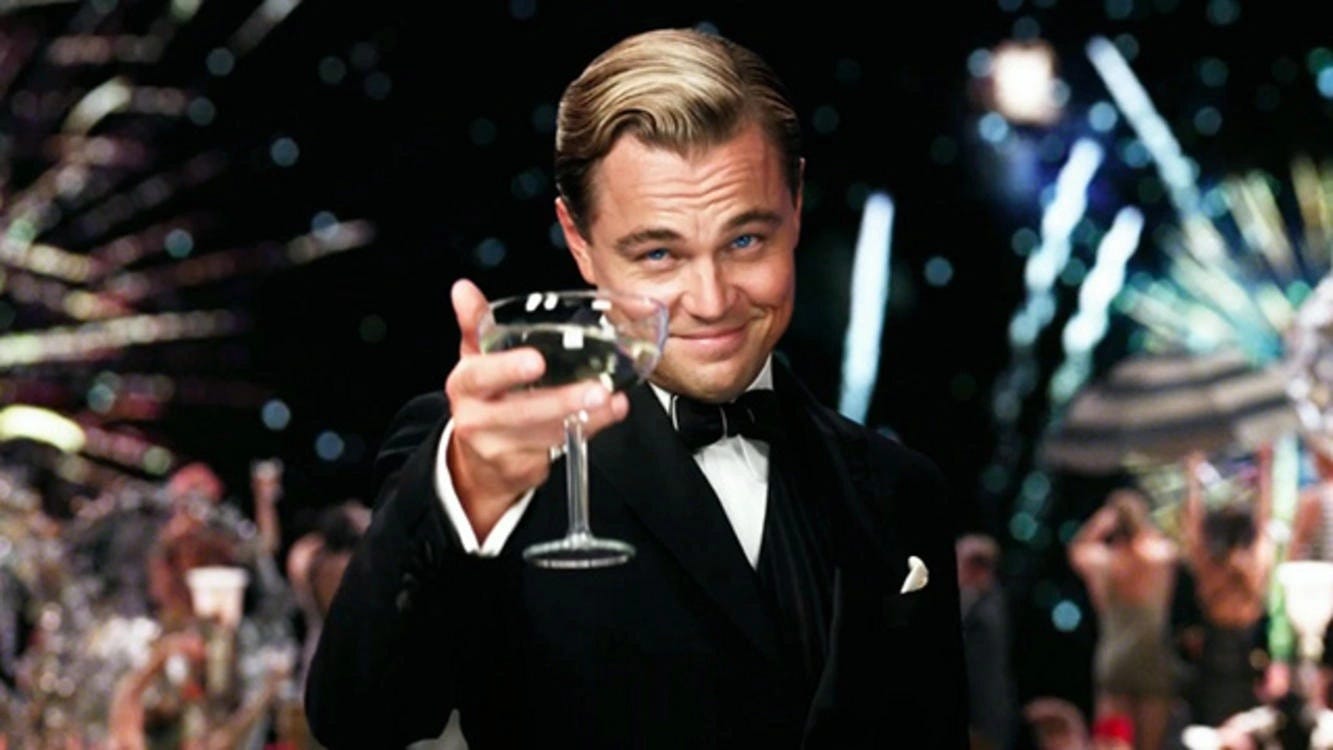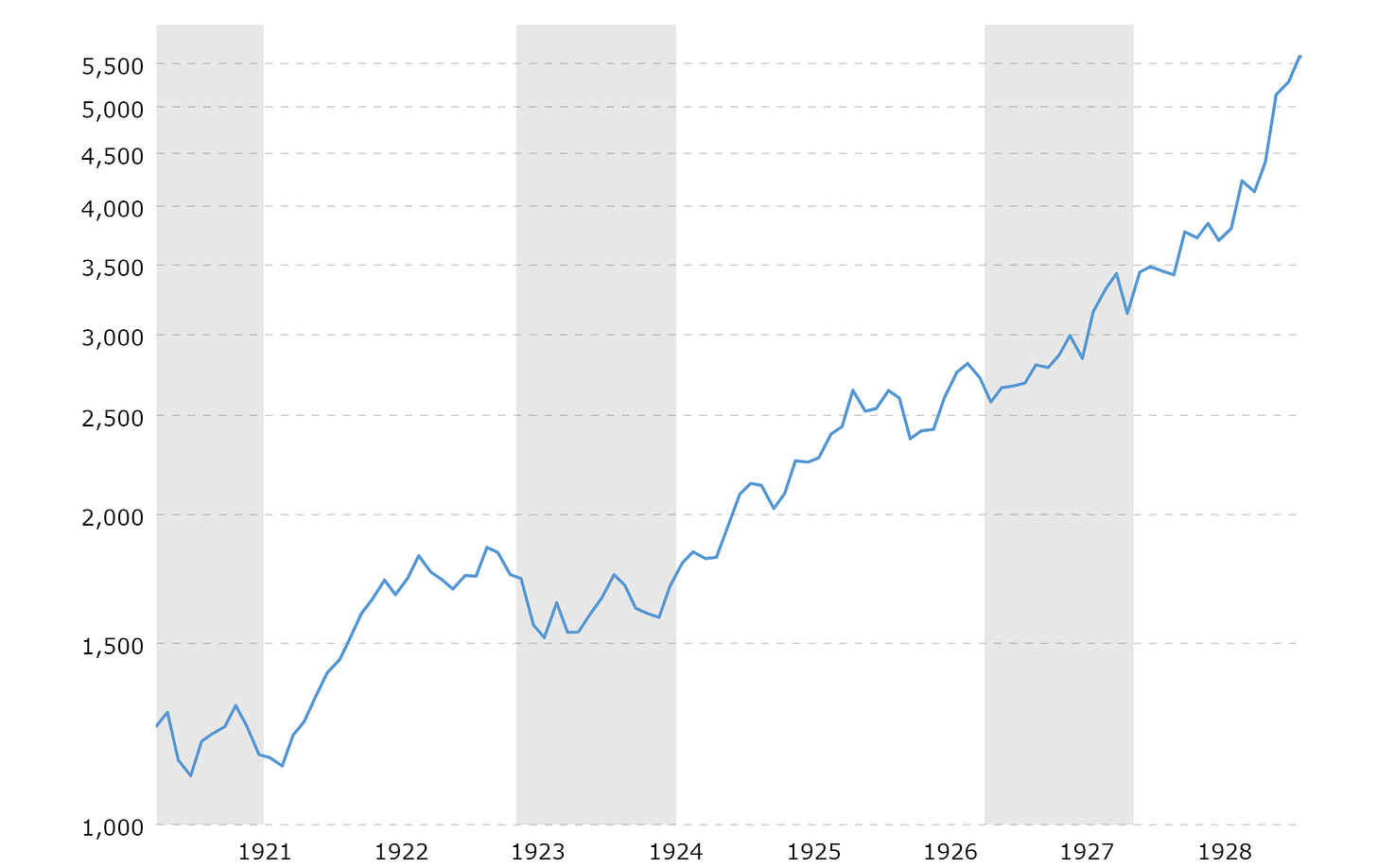One Hundred Years of The Great Gatsby
It has been a century since this novel has baffled writers, critics and filmmakers alike. Here, I offer an alternate economic interpretation: 'The Great Gatsby' is the ultimate bull market novel.
To put into perspective, why ‘The Great Gatsby’ is such a big deal, consider this: when it released in 1925, the novel was a massive failure. F. Scott Fitzgerald, the writer, died thinking that he had written the biggest flop of his career. He couldn’t have been more wrong. Since he died, the novel has inspired 7 movie adaptations, fashion accessories, hotels, furniture, one of the most popular memes of our times, and has become a singular literary icon. All this for a novel that failed to sell a meager 20,000 copies upon its release in the 1920s.

One possible reason why Gatsby failed to attract attention in the 1920s, is because it depicted a world that was significantly different from the world that had existed before. The 1920s, fittingly called the Roaring Twenties, gave the world widespread electrification, cars, radio, movies, Jazz, high-fashion and aviation - things that literally changed the world. The Roaring Twenties also saw a phenomenon that hadn’t happened in the history of modern capitalism before - the first ever bull market. A bull market is when the price of commodities, securities, bonds and assets continually rises. Typically, in a bull market, there’s excess money in the system which finds its way into assets, shooting up their prices. This leads to their overvaluation. But bull markets do not only overvalue assets, they overvalue individuals as well. The excess money finds its way into people’s pockets, their net worth shoots up, often times, undeservingly so. Bull markets reward individuals who are at the right place, at the right time, who show some courage and risk-taking. That’s how Gatsby makes his wealth in the story. From being a down-and-out fisherman, Gatsby becomes one of the wealthiest man in New York after he rescues a Mining Mogul at the sea, who then takes Gatsby under his wing and makes his fortune. This sudden change in Gatsby’s fortune is only made possible due to the existence of the bull market of that time.
This sudden reversal of fortune was alien for the people in the 1920s. What was also alien was the idea of the ‘Modern Rich Man’. The rich were no longer aristocrats wielding state power from palaces, but capitalists and successful businessmen, partying in their urban mansions, surrounded by cars, designer fashion, music, dance, expensive alcohol, films, and film-stars. Notice, how the idea of the rich hasn’t changed since, but it was in the 1920s that it first took shape. Jay Gatsby is one such rich man who becomes known for throwing the most outrageously lavish parties in New York. As the story progresses, we learn that Gatsby’s outward extravagant perception notwithstanding, inside, he is a deeply broken, vulnerable and weak man. In the end, he dies a lonely, tragic death amidst a sinking personal reputation and fading material possessions.
The universality of the story, and its long-lasting relevance is apparent. This story is no longer alien to us, sitting in 2020s. In the last century, there have been at least a dozen bull markets, the most recent one being the bull market of 2020-21. Look around you, and I am certain you will find many entrepreneurs, founders and tech employees who made a windfall in the last two years, raising and earning capital raised at elevated valuations. Jay Gatsby is their very first spiritual ancestor. This rich-people-bad shtick, which was unpalatable for the people in the 1920s is so second-nature to us now that it’s almost become stale. Today, rich men, just by the virtue of them being rich, are grounds for popular contempt. There is an implicit assumption that the very rich do not deserve the wealth they possess. The word ‘billionaire’ is used more as an insult than a compliment. We love the idea of the rich being shown as broken, hollow-from-inside and destined to failure. I posit that ‘The Great Gatsby’ is the first popular work of fiction that introduced this notion. All stories since owe their debt to Gatsby.
But that’s not what makes Gatsby’s legacy so enduring. Unlike its modern descendants, the novel does not demonize Gatsby. It ends up deeply humanizing him. By the end, one does not feel contempt for Gatsby but a profound sense of compassion and empathy. The reader is left confused whether to like this guy or hate him. This is a big reason why ‘The Great Gatsby’ is one of the most misunderstood novels ever.
I recently reread the novel to see if it still holds up. It does, even more so today than ever. You could transport the novel from 1920s New York to 2020s Bangalore and the story will hold true. Given its ambivalence, it’s hard to know what ‘The Great Gatsby’ is trying to tell us. I think it’s telling us the same thing that religions have told us for centuries, what Irshad Kamil tells us in 'Nadaan Parindey’, and what The Elder tells John Wick in Chapter 4: you cannot escape yourself.




